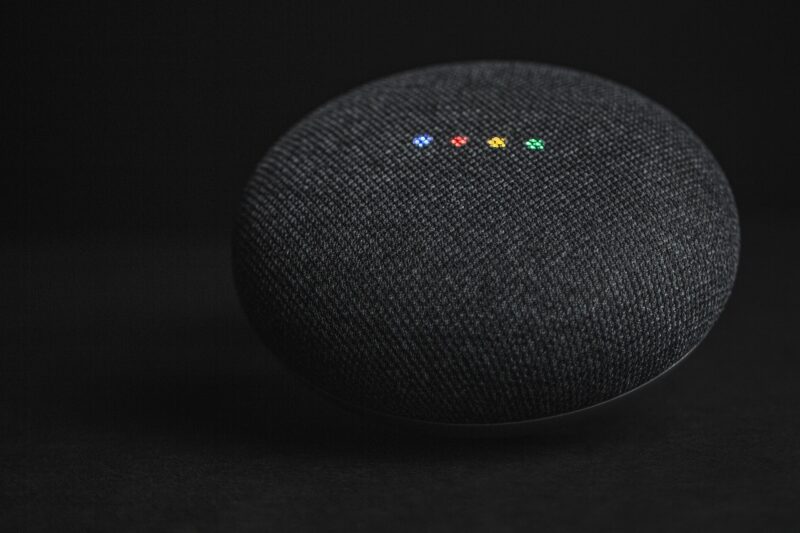How AI-Powered Personal Assistants Are Changing the Way We Work and Live
November 12, 2024

In today’s fast-paced world, managing our time and responsibilities can often feel overwhelming. With work, family obligations, social engagements, and personal interests competing for our attention, many individuals are turning to technology for solutions. Enter AI-powered personal assistants—intelligent software applications designed to help streamline tasks, enhance productivity, and improve overall wellbeing. In this article, we explore how these digital helpers are transforming our work and personal lives for the better.
1. What Are AI-Powered Personal Assistants?
AI-powered personal assistants, commonly referred to as virtual assistants, utilize artificial intelligence (AI), machine learning, and natural language processing to perform tasks and provide information on demand. Examples of popular AI personal assistants include:
- Siri: Apple’s personal assistant embedded in iOS devices.
- Alexa: Amazon’s cloud-based voice service powering Echo devices.
- Google Assistant: Google’s voice-activated assistant available on devices like Google Home and Android phones.
- Cortana: Microsoft’s virtual assistant designed to provide productivity support.
These assistants can complete a wide range of tasks, from managing calendars and sending messages to controlling smart home devices and providing real-time updates on weather and traffic.
2. Enhancing Productivity in the Workplace
In the professional realm, AI-powered personal assistants are revolutionizing how we manage our time and responsibilities. Here’s how:
- Task Automation: Personal assistants are capable of automating repetitive tasks such as scheduling meetings, setting reminders, and managing emails. This frees up valuable time for employees to focus on more strategic activities.
- Efficient Information Retrieval: With voice-activated and text-query capabilities, AI assistants can rapidly provide information and answer questions. This rapid retrieval can empower employees to make informed decisions quickly.
- Improved Communication: AI assistants can help draft emails, create meeting agendas, and summarize key points from conversations. As a result, communication among team members becomes clearer and more efficient.
- Personalized Workflow Management: AI assistants learn from users’ habits and preferences, enabling them to provide tailored suggestions that fit individual workflows. Over time, this personalization can greatly enhance productivity.
The introduction of AI assistants into workplaces represents a substantial shift; employees are saving time and enhancing collaboration through the efficient management of tasks.
3. Reducing Stress and Improving Work-Life Balance
In addition to improving productivity, AI personal assistants contribute significantly to work-life balance, allowing individuals to better manage both personal and professional responsibilities. Here’s how:
- Time Management: By efficiently organizing schedules and reminding users of important dates and deadlines, AI assistants alleviate the mental burden of time management.
- Task Prioritization: AI assistants can analyze to-do lists and suggest priorities, ensuring users tackle the most important tasks first and maintain focus.
- Enhanced Availability: Many tasks can be delegated to the assistant, allowing users to reclaim precious time in their day for family, hobbies, and relaxation.
- Accessibility and Support: AI assistants are available 24/7, providing users with a consistent support system that adapts to their needs, regardless of time or place.
This shift promotes a healthier work-life balance, ultimately leading to happier and more satisfied individuals who can juggle their commitments without feeling overwhelmed.
4. AI-Powered Assistants in Everyday Life
Outside of the professional sphere, AI personal assistants also enhance everyday life by:
- Managing Household Tasks: From setting reminders for grocery shopping to controlling smart home devices like thermostats and security systems, personal assistants help streamline home management.
- Supporting Personal Goals: Whether tracking fitness goals, budgeting, or organizing travel plans, AI assistants can serve as an accountability partner, helping users stay focused on personal aspirations.
- Providing Information: Need a recipe? Want to know the score of the game? AI assistants can provide quick access to relevant information, enhancing everyday experiences.
- Entertainment: Users can easily ask their assistants to play music, recommend movies, or read audiobooks, making leisure time more enjoyable.
AI-powered personal assistants transcend professional boundaries; they are changing the fabric of daily life by simplifying tasks and enhancing experiences.
5. Challenges and Concerns
Despite their numerous benefits, the rapid adoption of AI assistants does raise some important concerns:
- Privacy Issues: As these assistants require access to personal information, concerns about data security and privacy breaches are paramount. Users must be cautious about what information they share.
- Dependence on Technology: Over-reliance on AI assistants can lead to reduced cognitive effort and skills in problem-solving. Users must be mindful of striking a balance between assistance and self-reliance.
- Job Displacement: As companies adopt AI solutions for efficiency, there is concern about the potential impact on job security for certain roles, especially those that involve administrative tasks.
Legislators, companies, and technology developers need to address these concerns proactively to optimize the benefits of AI while ensuring ethical use and user protection.
6. The Future of AI Personal Assistants
As technology continues to evolve, AI-powered personal assistants are expected to advance significantly, leading to:
- Greater Customization: Future assistants may become even more personalized, adapting intricately to user preferences and improving their predictive capabilities.
- Increased Integration: AI assistants could integrate seamlessly with other technologies (e.g., AR/VR) to enhance user experience and expand their roles.
- Natural Conversational Capabilities: Advancements in Natural Language Processing (NLP) may lead to more intuitive and engaging conversations, enabling users to interact naturally and effortlessly.
As artificial intelligence continues to grow, the possibilities for AI assistants seem endless. They will likely become more ubiquitous in both workplaces and homes, fundamentally transforming how we interact with technology and manage our lives.
Conclusion
AI-powered personal assistants are not just gadgets—they are evolving into vital components of our daily lives, reshaping the way we work and live. By automating tasks, enhancing communication, and supporting personal goals, these digital helpers can provide tremendous value. However, as we embrace this technology, we must remain aware of privacy and dependence concerns. The future is bright, and with responsible usage, AI personal assistants will continue to enrich our lives in numerous ways, allowing us to focus on what truly matters.







